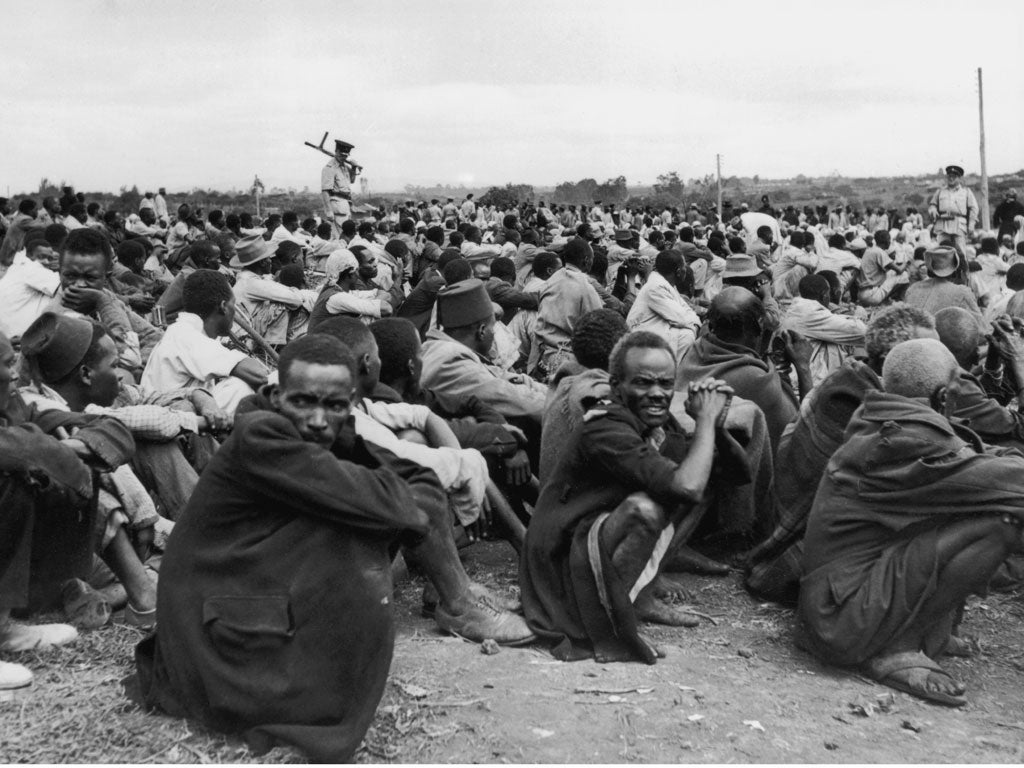Hague to express 'sincere regret' over Mau Mau uprising and announce compensation of £14m
More than 5,000 now elderly people are each expected to be given £2,600 – about five times the average annual income in Kenya

Your support helps us to tell the story
From reproductive rights to climate change to Big Tech, The Independent is on the ground when the story is developing. Whether it's investigating the financials of Elon Musk's pro-Trump PAC or producing our latest documentary, 'The A Word', which shines a light on the American women fighting for reproductive rights, we know how important it is to parse out the facts from the messaging.
At such a critical moment in US history, we need reporters on the ground. Your donation allows us to keep sending journalists to speak to both sides of the story.
The Independent is trusted by Americans across the entire political spectrum. And unlike many other quality news outlets, we choose not to lock Americans out of our reporting and analysis with paywalls. We believe quality journalism should be available to everyone, paid for by those who can afford it.
Your support makes all the difference.William Hague will today express “sincere regret” to thousands of Kenyans detained during the Mau Mau uprising in the 1950s and 1960s as he announces a compensation package of around £14m.
More than 5,000 now elderly people are each expected to be given £2,600 – about five times the average annual income in Kenya – because of the torture and mistreatment they suffered while in British custody.
The Foreign Secretary will set out details of the moves in a statement to the Commons this afternoon. It is understood he will also announces plans to build a permanent memorial to the victims in Nairobi, the Kenyan capital.
Today’s announcement will be the first official acknowledgement by the British authorities of the brutal behaviour , including castration, rape and beatings, of some of its forces trying to quell the Kenyan 'Emergency' of 1952-60.
The settlement follows test cases brought by three Kenyans in the London courts. The government had argued that too much time had elapsed for a fair trial and maintained that all liabilities for the torture by colonial authorities had been transferred to the Kenyan Republic when it became independent in 1963.
But judges ruled it was wrong, especially after the discovery of an archive of 8,000 documents from 37 former colonies.
Among the papers was a memo from Eric Griffith-Jones, then the Attorney general of Kenya, who agreed to sanction beatings as long as it was done secretly. “If we are going to sin, we must sin quietly,” he wrote.
Paul Muite, a Kenyan lawyer advising Mau Mau veterans, said: “We have agreed on an out-of-court settlement.” He said compensation will go to “everybody with sufficient evidence of torture”, about 5,200 people.
Join our commenting forum
Join thought-provoking conversations, follow other Independent readers and see their replies
Comments